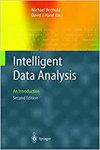时序推荐的特征感知多空兴趣演化网络
IF 0.8
4区 计算机科学
Q4 COMPUTER SCIENCE, ARTIFICIAL INTELLIGENCE
引用次数: 0
摘要
推荐系统是处理信息过载的有效解决方案,特别是在电子商务领域,顺序推荐被广泛使用。顺序推荐的目的是通过分析用户的历史交互顺序,获取用户的兴趣并提供准确的推荐。为了提高推荐性能,考虑用户的长期和短期利益是至关重要的。尽管这一领域取得了重大进展,但仍有一些问题需要解决。传统的顺序推荐模型通常使用统一的嵌入来表达每个项目,忽略了项目属性(如类别、品牌和价格)之间的演化模式。此外,这些模型往往独立地对用户的长期和短期兴趣进行建模,未能充分解决兴趣漂移和短期兴趣演变的问题。为了解决上述问题,本研究提出了一个新的模型——特征感知的多空利益演化网络(FLSIE)。具体而言,该模型使用显式特征嵌入来表示项目属性信息,并采用二维注意机制来区分特定项目中单个特征的重要性和每个项目在交互序列中的相关性。此外,为了避免兴趣漂移问题,该模型采用长期兴趣引导机制来增强短期兴趣的表征,并采用带注意力更新门的门控循环单元来模拟用户短期兴趣的动态演变。实验结果表明,我们提出的模型在三个真实数据集上优于现有的方法。本文章由计算机程序翻译,如有差异,请以英文原文为准。
A feature-aware long-short interest evolution network for sequential recommendation
Recommendation systems are an effective solution to deal with information overload, particularly in the e-commerce sector, in which sequential recommendation is extensively utilized. Sequential recommendations aim to acquire users’ interests and provide accurate recommendations by analyzing users’ historical interaction sequences. To improve recommendation performance, it is vital to take into account the long- and short-term interests of users. Despite significant advancements in this domain, some issues need to be addressed. Conventional sequential recommendation models typically express each item with a uniform embedding, ignoring evolutionary patterns among item attributes, such as category, brand, and price. Moreover, these models often model users’ long- and short-term interests independently, failing to adequately address the issues of interest drift and short-term interest evolution. This study proposes a new model, the Feature-aware Long-Short Interest Evolution Network (FLSIE), to address the above-mentioned issues. Specifically, the model uses explicit feature embedding to represent item attribute information and employs a two-dimensional (2D) attention mechanism to distinguish the significance of individual features in a specific item and the relevance of each item in the interaction sequence. Furthermore, to avoid the issue of interest drift, the model employs a long-term interest guidance mechanism to enhance the representation of short-term interest and adopts a gated recurrent unit with attentional update gate to model the dynamic evolution of users’ short-term interest. Experimental results indicate that our presented model outperforms existing methods on three real-world datasets.
求助全文
通过发布文献求助,成功后即可免费获取论文全文。
去求助
来源期刊

Intelligent Data Analysis
工程技术-计算机:人工智能
CiteScore
2.20
自引率
5.90%
发文量
85
审稿时长
3.3 months
期刊介绍:
Intelligent Data Analysis provides a forum for the examination of issues related to the research and applications of Artificial Intelligence techniques in data analysis across a variety of disciplines. These techniques include (but are not limited to): all areas of data visualization, data pre-processing (fusion, editing, transformation, filtering, sampling), data engineering, database mining techniques, tools and applications, use of domain knowledge in data analysis, big data applications, evolutionary algorithms, machine learning, neural nets, fuzzy logic, statistical pattern recognition, knowledge filtering, and post-processing. In particular, papers are preferred that discuss development of new AI related data analysis architectures, methodologies, and techniques and their applications to various domains.
 求助内容:
求助内容: 应助结果提醒方式:
应助结果提醒方式:


